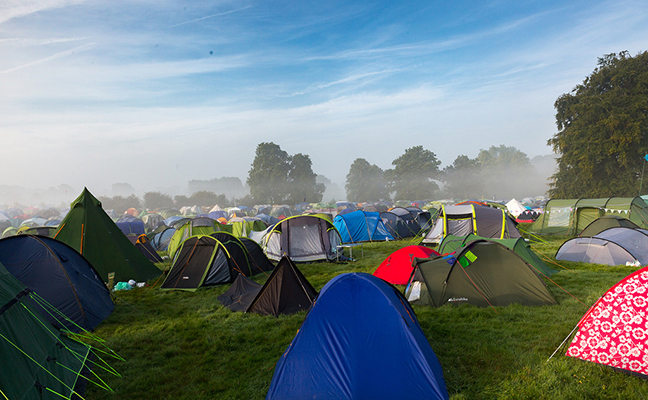We’re just about to welcome festivalgoers to the 45th edition of Greenbelt. And once again, I find myself in reflective mode – in the midst of the inevitable and relentless rush of last-minute snagging and fixing, of course. That’s because another year of dreaming, planning and grafting is about to come together and play itself out over just three and half days in a field. The pressure and anticipation is palpable.
I love festival-ing. I’ve been going to festivals for 35 years of my life now – revelling in them, performing at them, volunteering at them, and now having the privilege of helping to shape one. They’ve been essential to my growth as a creative human and a person of faith and to my view of the arts, culture, spirituality and justice.
And as we’ve made this year’s Greenbelt festival I’ve been struck by the ways in which, as we create a space to take people away of their workaday worlds and experience, we have, at the same time, drawn closer than I can ever remember to the big issues of the day in our curation. It’s a strange, push-me-pull-you dynamic. But it’s probably the thing about my role as Creative Director that I love the most.
The wonderful Pat Kane recently wrote a piece about the way in which festivals are increasingly becoming the places that are changing society, not just the places people go to get away from society. And I couldn’t agree more. Because the best festivals aren’t about escape. Or at least they’re not about escape only. Our dreaming and planning this year has brought us face-to-face with so much we need to engage with rather than escape from and we hope that this weekend our festivalgoers will be provoked and inspired similarly.
For instance:
- We’ve listened to and learned about the Windrush story as we’ve worked on the festival communion service.
- We’ve had a visceral sense of the pervasive patriarchy and power of Putin’s Russia as we’ve worked with Pussy Riot on bringing the collective to be in residence for the weekend.
- We’ve pondered Donald Trump and the impact of his presidency, sparking us to invite our American artists onsite this weekend to get together to give us their perspective on an America that elected him President.
- We’ve weathered the coldest winter for years (including the Beast from the East) and then the hottest, driest summer for decades, and we’ve been brought back to climate change more seriously than ever and to wonder what more we can do to make a difference.
- We’ve watched on as the Labour Party has been embroiled in accusations of anti-Semitism, and we’ve asked ourselves where we are on that issue as a community, given our longstanding commitment to highlighting the rights of the Palestinian people and their call for justice.
- We’ve been taken deeper into thinking about people movement around the world, not least as Malak Mattar, the wonderful teenage Gazan artist we’ve been working with all year, had her visa application rejected just last Friday, meaning she can’t be with us at the festival.
- We’ve also been challenged to think about intersectionality as we’ve sought to book the most diverse bill ever and to engage with as wide a range of justice issues as we possibly can – and we’ve had to learn about the interconnectedness and layering of injustices and identities.
And so we’ll encounter all these things – and more – over the festival weekend. But, because of how and where these encounters happen, we will feel energised rather than overwhelmed by them. It’s a strange thing: the provocation will prove an inspiration. A catalyst for change.
One thing that Pat Kane suggests in his article is that festivals might just be the best places to consider our futures too. Which is why our theme, Acts of the Imagination, and our brand new Telescope venue are so timely. Because that’s what they do. They look forward, while recognising that you sometimes have to step aside from the run of the mill to see things more clearly.
And, in all this, the source of our values and inspiration for societal and personal change remains Jesus Christ of Nazareth – who over-turned the tables, welcomed the outsider, played gentle-yet-subversive games with the powerful, told imaginative stories instead of preaching certainties, and who included those from different tribes and races in many of his encounters.
When Rob Bell came to the UK earlier this summer for his Holy Shift tour, he spoke about the radical not as someone who goes off into the scrub at the edge of the village to separate and distance themselves. But instead as someone who is trying to dig deeper, to get back to the heart of things. Even if it looks like they’re going away, they are in fact trying to come home.
So, as we prepare to welcome thousands to join us in the beautiful parkland at Boughton House, away from the hustle and bustle of everyday life, we will, curiously, be confronting reality more creatively and generously than ever we do on the other 360-odd days of the year. And we’ll also be soaking up the inspiration and laughter and community we’ll need in order to take that provocation back into our everyday lives with energy and grace.
I couldn’t agree more with Pat Kane when he says: “Call it engagism rather than escapism. Festivals are about more than just summer fun.”
Although we will have fun, of course. Lots and lots of fun!


